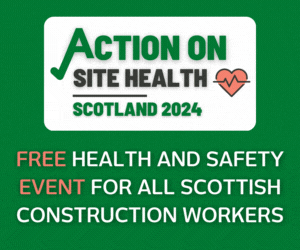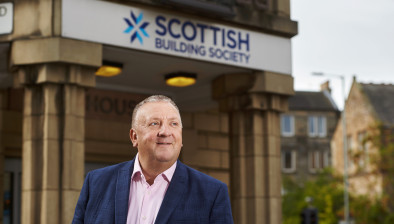Scottish Building Society warns of ‘lost generation’ of young buyers as house prices surge
Paul Denton, the head of Scottish Building Society (SBS), has welcomed a dramatic rise in house prices - but warned the impact of COVID-19 could prove a barrier to a generation of buyers getting on to the housing ladder.

Paul Denton
Yesterday’s House Price Index released by the Land Registry and the Office for National Statistics (ONS) reports that year-on-year property prices in Scotland surged 8.6% in November to £165,703 - ahead of the UK average of 7.6%.
But Mr Denton said young buyers could be worst hit as house price rises continue to outstrip income.
He said: “The increase is driven by pent-up demand caused by lockdown earlier last year. It does also highlight systemic changes in the market which could have consequences on the ability of a generation of young people to buy their own homes.
“Remote working, lockdown and the end to the daily commute has seen people re-evaluate their priorities on the type and size of house they and their family need. People are looking for larger homes outside the city, with gardens and home offices.
“However, before COVID-19, Scotland was suffering a significant lack of housing stock – with 80,000 fewer homes built each year since the last financial crash.
“Now the unpredictable consequences of Covid-19 could exacerbate that shortage and increase the generational inequality gap. House prices have soared disproportionally relative to income, and many young people struggle to save up for deposits which can be close to their annual salary. They end up relying on the bank of mum or dad or stay at home longer.”
Average house prices rose 152% in the 20 years to 2016, while family income for 25 to 34-year-olds only grew by 22%.
Mr Denton added: “There is no magic bullet to solving this problem, but it does need to be recognised as an urgent priority for our industry and governments.
“The housing market is worth £18 billion and key to the recovery from a pandemic that has left permanent economic and societal scars. Part of that recovery has to be a real strategic collaboration to ensure that we do not leave a generation of young people behind.”
In Scotland, terraced properties showed the largest increase, rising by 10.0% to £139,874. The largest increase was in East Ayrshire at 15.6% to £110,073. The only decrease was recorded in Aberdeen City, where the average price fell by 3.4% to £140,629.
David Alexander, joint chief executive officer of apropos by DJ Alexander, said: “These figures highlight just how successful the stamp duty holiday has been across the whole of the UK with each nation recording substantial increases in the volume of sales coupled with rising prices.
“However, it is clear that Scotland has been enjoying a greater boom in house sales than the rest of the UK with more than double the volume in the latest three months compared with the previous three-month period. Given that the relaxation of the threshold for land and buildings transaction tax (LBTT) in July is clearly the source of this housing boom it would seem questionable to let this suddenly end on the 31st March.”
Mr Alexander added: “With the Scottish budget happening next week it would be the ideal opportunity for the Scottish Government to signal its intent on preserving the growth in the property market by announcing a continuation of the stamp duty holiday beyond March to ensure there is no sudden decline in activity.
“With the Chancellor already hinting that the Westminster government may extend the stamp duty holiday beyond March it provides the Scottish Government the ideal opportunity to take the lead and instigate a popular policy which would help to sustain the economy in the difficult months ahead.
“An announcement that a phased ending of the LBTT holiday would provide a much-needed signal to home buyers that the government understood the need for financial stability in the property market and was supporting to the fullest homeowners during what has undoubtedly been a trying time for everyone. This would help the economy, help the Scottish people, provide an incentive for individuals and companies to invest, and send a signal that Scotland can go its own way on key financial issues.”



















